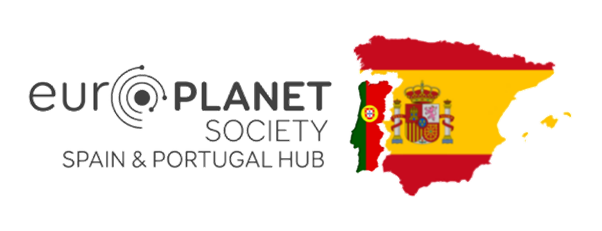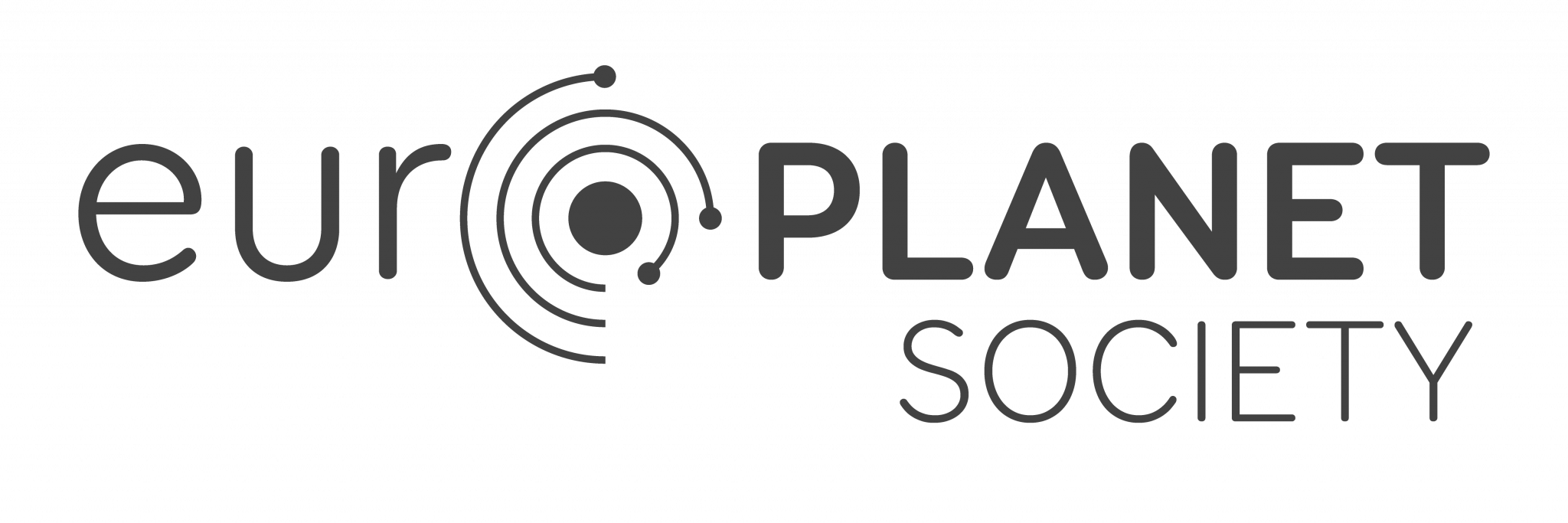Members
Europlanet Society
Facilities
Ground Based Telescopes
Industry
& Stakeholders
Professional
Community
Amateur
Community
Networking
Hub Activities
Space
Exploration
Outreach
Activities
Planetary Sciences
in Spain and Portugal
Join
Europlanet Society
News
- Award "Abraham Zacut" for best PhD Thesis on Planetary Sciences & Exploration presented in 2025
- Award "Pedro Nunes" for best Master's Thesis on Planetary Sciences & Exploration presented in 2025
Application form submission by 13 March 2026.
EUROPLANET IBERIAN NODE - PLANETARY THESIS AWARD 2025 - APPLICATION FORM
The Europlanet Iberian Hub is proud to announce the winners of the early-career prizes for best planetary thesis in Spain & Portugal in 2024:
"Abraham Zacut" Award
|
|
Dr. Eloy Peña Asensio
|
|
"Pedro Nunes" Awards
|
|
Yuri Damasceno
|
|
| |
Rafael Silva
|
These awards are named after historical astronomers from Spain and Portugal, who lived and worked in both countries, serving as role models of Iberian synergy and collaboration. Their astronomical and instrumental contributions played a key role in the maritime navigation era and enabled historical discoveries of planetary importance.
We thank all the candidates for their participation and for the high quality of the works presented in this competition, which we hope will serve as motivation for the new generation of planetary scientists and engineers in Spain and Portugal.
The Europlanet Iberian Hub is proud to announce the winners of the Europlanet Iberian Solar System Amateur Astronomy award, shared ex-aequo between:
Moisés Portillo
for his outstanding contributions to the Planetary Science community, advancing the boundaries of high-spatial resolution imaging of Solar System objects
The award recognizes Moisés Portillo's long career of observing planetary objects, both individually and using entirely amateur equipment, and his notable contributions to various fields of planetary astrophotography. These contributions include monitoring the meteorological activity of Jupiter and Saturn, the first amateur detection of a volcanic eruption on Jupiter's moon Io, and monitoring the brightness variability of the planet Uranus, combined with observations taken by NASA's New Horizons space mission. Furthermore, Moisés has contributed to the study of dust storm activity on Mars and to the study of the atmosphere of Venus and the observation of its surface. The award from the Iberian node of the Europlanet Society recognizes the combination of his individual contribution and his collaborative and open spirit, which has led him to support the observations of many other amateurs, personally contributing numerous observations to professional image databases. Thanks to his tenacity and experience, many of his images achieve a spatial resolution that is enviable even by professional means.
Agrupación Astronómica de Sabadell
for their large and exemplary contribution to the Ariel mission, combining observations of transiting exoplanets with a variety of amateur and professional telescopes.
The Sabadell Astronomical Association's group of observers has made numerous observations of exoplanet transits, allowing them to accurately determine the orbital characteristics of many exoplanets of interest for the characterization of their atmospheres, which will be carried out by the European Space Agency's Ariel space mission starting in 2029. Ariel observations from space require a prior characterization of their orbits and occultation times, a task in which the Sabadell team has played a prominent role, participating in a whole series of observations with professional telescopes such as the IAC80, the Carlos Sánchez Telescope, the Joan Oró Telescope, and the 1.23m telescope at the Calar Alto Observatory. Initially in collaboration with the Europlanet project and its Europlanet Telescope Network, and subsequently collaborating directly with the staff of various observatories after confirming the quality of the observations made. The Sabadell group has demonstrated that it is possible to achieve a professional level of observation from an amateur perspective thanks to the dedication and excellence of its members. Their observations have been incorporated into multiple scientific publications for the Ariel mission, where they are a key member of the ProAm ExoClock project, in which amateur astronomers from around the world participate.
We thank all the candidates for their participation and for the high quality of the works presented in this competition, which we hope will serve as motivation for the amateur astronomy community in Spain and Portugal.





